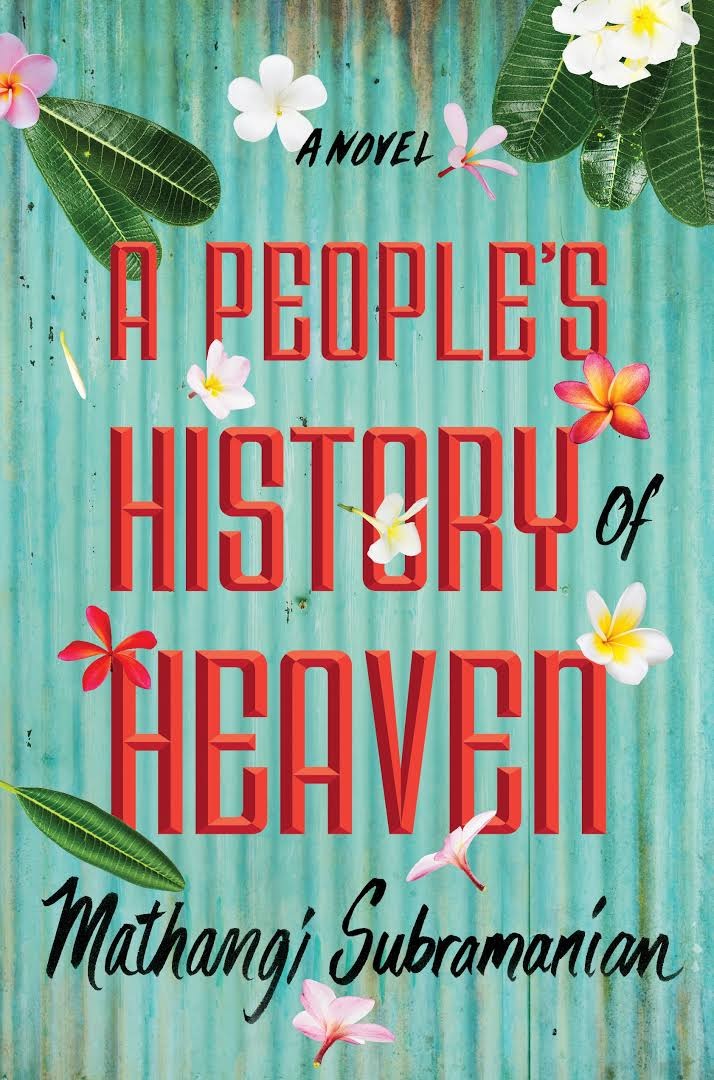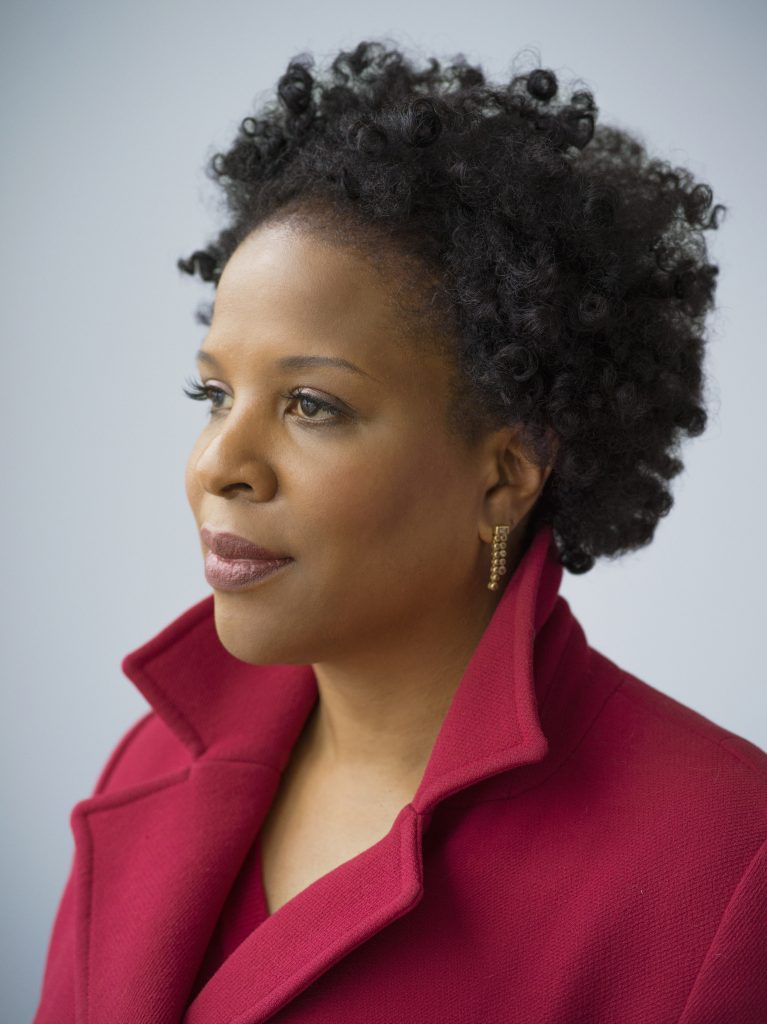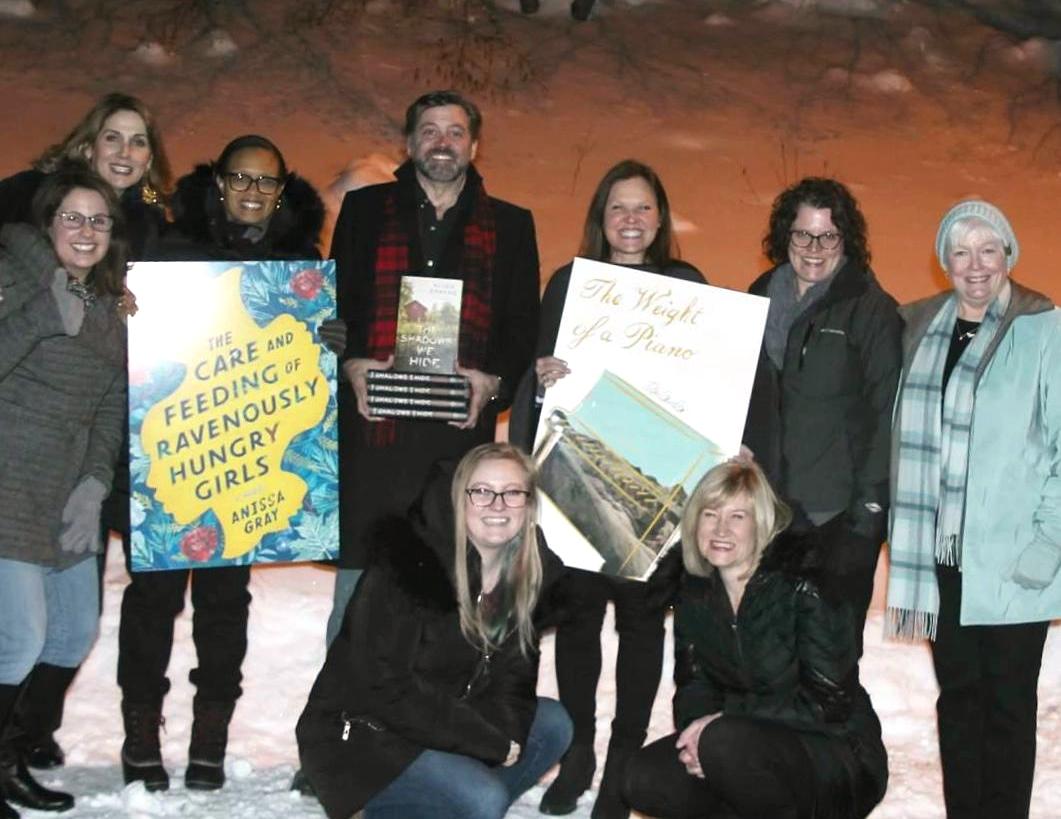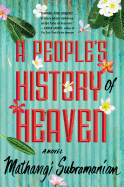 In her poetic first novel for adults, A People's History of Heaven, Indian American author Mathangi Subramanian (Dear Mrs. Naidu) imagines the lives of five teen girls in a Bangalore slum on the brink of destruction.
In her poetic first novel for adults, A People's History of Heaven, Indian American author Mathangi Subramanian (Dear Mrs. Naidu) imagines the lives of five teen girls in a Bangalore slum on the brink of destruction.
"Heaven" takes its name from the Sanskrit words on a nearby sign, though the "ragged jigsaw of tilted tents, angry quilt of rusted roofs, maze of sagging sofas" make the ramshackle neighborhood look anything but celestial. In fact, the government has sent a demolition crew to tear down Heaven so they can replace it with a new shopping center. The residents, mostly abandoned wives raising a vibrant assortment of daughters with few prospects, band together to stop the bulldozers.
The first person plural narrative voice, speaking from the girls' point of view, opens its story with a scene of the women forming a human chain, predicting, "Our houses may break, but our mothers won't." Leaving the reader with that potent image, the voice relates a chronologically fluid history of the hilarity and heartache the girls have faced together over the years.
Deepa is blind but also the cleverest of the girls. Banu may have dyslexia, but she has a keen instinct for art and construction work. Padma, a migrant from the countryside, carries the responsibility of looking after her depressed mother and two brothers. Rukshana, queer and Muslim, is falling for a girl. Joy, the group's queen and great beauty, wonders about her future as a trans woman. By standing together, the girls have conquered rat infestations, abusive men and an awkward dance contest. Saving Heaven will take every ounce of ingenuity and solidarity the residents possess, but the girls and their mothers will do anything to keep their homes.
In this Heaven, love comes first. Subramanian, who lives in New Delhi, never shrinks from the dangers and discrimination facing impoverished women, but she also gives her characters resiliency and hope in the form of each other. Whatever society may say about Joy's transition or Deepa's disability, the girls have boundless support from their clique, their wise and cunning headmistress and the mothers of Heaven. Subramanian's rich imagery conjures up the bustle of a diverse city where children live in poverty mere blocks from three-story homes where their mothers work as maids. With its heroic young cast, A People's History of Heaven has huge YA crossover potential, and its social commentary makes it a wonderful book club selection. As colorful as a Rangoli design, this bittersweet coming-of-age story will linger in the reader's mind. --Jaclyn Fulwood, blogger at Infinite Reads
Shelf Talker: Five teenaged girls in an impoverished Bangalore neighborhood share their lives as their mothers fight against the demolition of their homes.
 "In Los Angeles, we have so many great indie bookstores, but outside of L.A., California is such a big state and I don't get to that many of them, so it's a real treat when I get to go out on tour. What is really incredible about publishing books is that I get to visit indie bookstores all over the country, and through that I have developed incredible relationships with booksellers and independent bookstores really far away from me, in places like Seattle and on the East Coast. Willow Books, the bookstore in my hometown of Acton, Mass., closed recently, but the Silver Unicorn opened up there last year; I haven't been yet but I heard they're doing really well.
"In Los Angeles, we have so many great indie bookstores, but outside of L.A., California is such a big state and I don't get to that many of them, so it's a real treat when I get to go out on tour. What is really incredible about publishing books is that I get to visit indie bookstores all over the country, and through that I have developed incredible relationships with booksellers and independent bookstores really far away from me, in places like Seattle and on the East Coast. Willow Books, the bookstore in my hometown of Acton, Mass., closed recently, but the Silver Unicorn opened up there last year; I haven't been yet but I heard they're doing really well.










 Tayari Jones will be the 2019 Author Ambassador for the fifth annual
Tayari Jones will be the 2019 Author Ambassador for the fifth annual 
 In an effort to avoid having the
In an effort to avoid having the 

 The historic yet "
The historic yet " Put Your Worries Here: A Creative Journal for Teens with Anxiety
Put Your Worries Here: A Creative Journal for Teens with Anxiety In her poetic first novel for adults, A People's History of Heaven, Indian American author Mathangi Subramanian (Dear Mrs. Naidu) imagines the lives of five teen girls in a Bangalore slum on the brink of destruction.
In her poetic first novel for adults, A People's History of Heaven, Indian American author Mathangi Subramanian (Dear Mrs. Naidu) imagines the lives of five teen girls in a Bangalore slum on the brink of destruction.